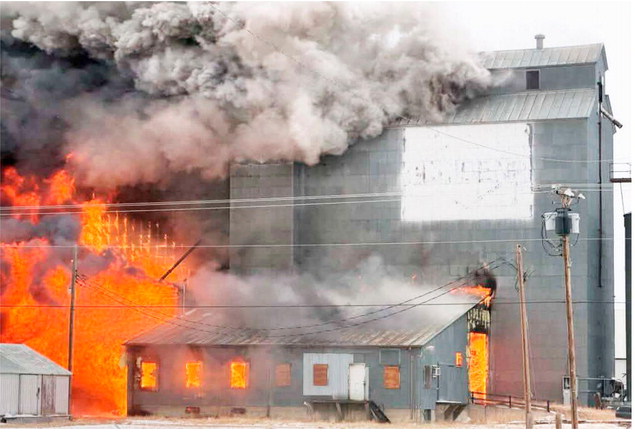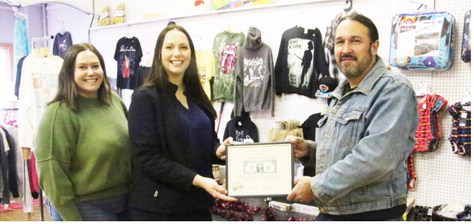Changes Coming To Montana Elections
Several bills passed during the 2025 legislative session change state election laws governing elections, including how late Montanans can register to vote.
Senate Bill 490, sponsored by Sen. Mike Cuffe, R-Eureka, changes the deadline for registering to vote or changing voter information. Proponents said the bill would put an end to long lines of last-minute voters waiting, sometimes until after midnight on Election Day, to register and vote. The bill limits same-day registration to a four-hour period on Election Day, and ends the ability to register on the Monday before an election.
Previously, anyone in line by 8 p.m. on Election Day could register to vote. Cuffe told lawmakers that county election officials across the state asked for the change.
“It’s hard to do a good job when you’re grinding away on a long day from 8 a.m. until 4 a.m., or whatever hours after four o’clock, because there’s a lot of work to do whenever the polls close,” Cuffe told the House State Administration Committee in March.
Opponents of the bill argued that limiting voter registration is unconstitutional.
Gov. Greg Gianforte signed the bill into law May 5.
Montanans can now register to vote until 5 p.m on Saturday before Election Day, or from 8 a.m. until noon on Election Day.
Senate Bill 440, sponsored by Sen. Theresa Manzella, R-Hamilton, mandates public reports of canvassed election results and requires the secretary of state to submit an election audit to legislators. Opponents of the bill said perpetual storage of hard-copy election data for all 56 Montana counties would be impractical. Manzella pitched the bill as a way to “purify” Montana elections of alleged voter fraud. Manzella, chair of the Senate State Administration Committee, cited the double-counting of more than a thousand ballots in Butte as an instance in which SB 440 would be useful. The bill passed the Legislature on April 11, but hasn’t yet been signed by Gov. Gianforte.
Similarly, Senate Bill 115 and Senate Bill 242, both sponsored by Sen. Wendy Mc-Kamey, R-Great Falls, address Republican concerns about ballot security. SB 115 adds an additional two days of required public notice before absentee ballot counts so interested parties can observe the count. SB 242 requires that ballots statewide bear a security mark and be uniform in size and weight. Both bills have been signed by the governor.
The Legislature also made changes to ballot initiative laws.
Lawmakers crafted two laws affecting signature-gathering to qualify an initiative for the ballot, plus a law to disqualify groups that receive contributions from nonprofit organizations that have donors outside the United States.
The Legislature on April 28 passed Senate Bill 226, sponsored by Sen. Cuffe, which requires that ballot initiative petition signatures be submitted in increments, rather than by a single deadline. County election officials argued that the multiple deadlines would make the process easier to manage, but grassroots petition groups told lawmakers that multiple deadlines would make qualifying for the ballot more difficult without having to hire paid signature gatherers.
“I understand that people that get to pay for staff have different challenges than people who don’t. And that’s my big concern,” Sen. Janet Ellis, D-Helena, said in a conference committee.
Gianforte signed SB 226 into law May 1.
Separately, House Bill 201, by Rep. Braxton Mitchell, R-Columbia Falls, requires paid signature gatherers to announce their name and state of legal residence when approaching a person about signing a petition. Signature gatherers are now also required to wear badges including their first name and last initial.
Opponents of the bill testified that disclosing that information could expose signature gatherers to personal harm.
HB 201 was signed into law by Gianforte May 1.
Another election-oriented bill approved by the Legislature this week, House Bill 818, also sponsored by Rep. Mitchell, requires political action committees involved with ballot measures to disclose whether contributions to the PAC include money from nonprofit organizations that receive donations from people outside the United States. The bill, which has not yet been acted on by the governor, requires PACs to self-report such donations, though federal tax law allows 501(c)(4) nonprofit social welfare groups to keep donors’ identities private.
The bill has drawn concern from some Republican lawmakers about whether foreign owners of Montana mines would be prohibited from politicking on ballot measures concerning environmental issues. After the bill was amended to accommodate political activity by mine owners, opponents suggested that the proposed rule is so accommodating that any foreign interest would be able to participate in Montana elections.

